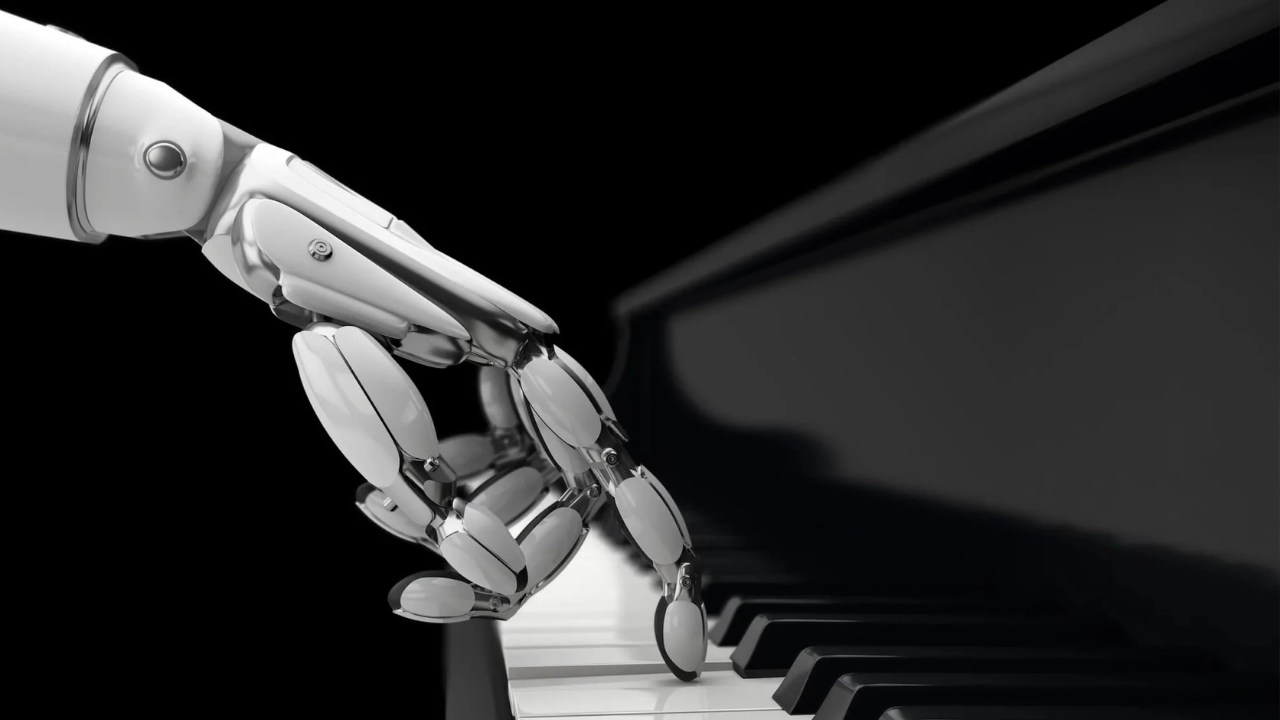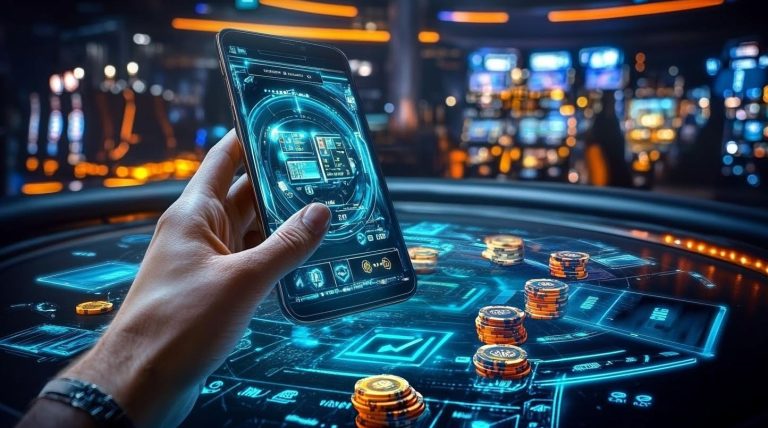The Rise of AI in Music: Is the Industry at Risk?
The music industry has always been a reflection of human creativity, emotion, and culture. From vinyl records to digital downloads, each technological leap has transformed how we make, distribute, and consume music. But the arrival of artificial intelligence in the creative space is different. This time, the technology isn’t just changing the tools—it’s influencing the very act of creation itself.
Today, AI is writing lyrics, composing melodies, mastering tracks, and even mimicking the voices of famous singers. While some see this as an exciting advancement, others fear it could replace human musicians altogether. So what does the rise of AI really mean for the future of music? Is the industry adapting—or is it at risk of losing its soul?
Let’s explore the growing influence of AI in music, the possibilities it unlocks, the controversies it sparks, and what lies ahead for artists, producers, and listeners.
AI: The New Composer in the Room
Artificial intelligence in music isn’t as futuristic as it sounds. AI tools like OpenAI’s Jukebox, Google’s MusicLM, and Sony’s Flow Machines are already creating full songs from simple text prompts or user instructions. These tools can generate melodies in various styles, imitate existing artists, or create entirely new sounds that don’t conform to traditional rules of music theory.
For instance, AI can be given a few keywords and produce an original composition that reflects a specific mood. It can suggest chord progressions, harmonies, and lyrics that fit the theme. It can even tweak the tone, tempo, or instrumentation to match a genre. This makes it an incredible assistant for producers who need inspiration or want to speed up their workflow.
Some artists use AI not as a replacement, but as a collaborator. They experiment with what the machine creates and use it as a base to build upon. In this sense, AI is becoming a co-creator—a kind of digital bandmate that never tires or complains.
Vocal Cloning and the Ghosts of Music Past
One of the most controversial uses of AI is in vocal cloning. With enough training data, AI can now replicate the voice of a singer with uncanny precision. In 2023 and 2024, viral examples of AI-generated songs featuring voices that sounded like Drake, Michael Jackson, and even Elvis Presley sparked heated debates across the music world.
To some fans, this is exciting. It opens up the possibility of hearing new “releases” from artists who have passed away or are no longer active. But for others—especially the artists themselves or their estates—it raises serious ethical and legal concerns. Who owns the rights to an AI-generated song that mimics a human voice? Is it a tribute or a form of digital impersonation?
Laws around this issue are still developing. Some music labels are starting to push back, issuing takedown notices and calling for stricter guidelines on how AI can be used. Meanwhile, some artists are embracing it. Grimes, for example, has publicly allowed fans to use her voice in AI-generated songs—as long as she gets a cut of the royalties.
The Threat to Human Musicians
One of the biggest fears in the industry is that AI could make human artists obsolete. If AI can write songs in seconds, sing in perfect pitch, and generate music at scale, why would record labels invest in human talent anymore?
This concern isn’t unfounded. In commercial spaces like background music, advertising jingles, or stock audio, companies are already using AI to create royalty-free music faster and cheaper than hiring a composer. It’s efficient, customizable, and doesn’t require contracts, schedules, or creative disagreements.
For independent musicians, this presents both a challenge and a warning. If AI can churn out dozens of tracks a day, how does a solo artist with limited resources compete? Will streaming platforms become flooded with machine-made content, making it even harder for real artists to stand out?
What AI Can’t Replicate
Despite its capabilities, AI still falls short in one key area: emotion. While it can analyze patterns, learn musical structure, and imitate voices, it doesn’t feel joy, heartbreak, anger, or nostalgia. Music is deeply tied to human experience, and even the most advanced algorithm can’t truly understand what it means to live, love, or lose.
Listeners connect to music not just because it sounds good, but because it tells a story that feels real. Whether it’s a breakup ballad or a political protest anthem, the soul of music lies in the intent behind it. AI might be able to write technically perfect songs, but they often lack that invisible thread of human authenticity.
This is why artists who embrace AI as a tool rather than a replacement are likely to thrive. They can use the technology to amplify their creativity—not to outsource it entirely.
A New Wave of Creative Possibilities
Rather than focusing only on the risks, it’s worth acknowledging the creative potential AI brings to music. For one, it democratizes access. Artists without formal training or expensive studio gear can now experiment with composition and production like never before. A teenager in a small town can create an orchestral piece with the help of AI, share it online, and build a fanbase—all from their laptop.
AI can also bridge cultural gaps. By analyzing music from different regions, it can help artists blend sounds in innovative ways, leading to entirely new genres and styles. This kind of cross-pollination has always been a hallmark of musical evolution, and AI might just accelerate it.
Even in live performances, AI is making an impact. Some artists use AI-driven visuals and sound manipulation to create immersive concert experiences. Others are experimenting with AI-generated visuals that respond in real time to the music being played.
What the Future Holds
As AI becomes more integrated into music, the industry will need to adapt. Here are a few likely developments on the horizon:
- Regulation: Governments and platforms will need to create clearer rules around copyright, vocal likeness, and royalties for AI-generated music.
- Transparency: Audiences may demand to know whether a song was created by a human, an AI, or a combination of both.
- Hybrid Artists: We’ll likely see more musicians using AI as part of their toolkit, much like how synthesizers or auto-tune once transformed music.
- New Genres: Just as digital tools gave rise to electronic music, AI may lead to the birth of entirely new soundscapes and styles.
Conclusion
AI is here, and it’s not going away. But rather than viewing it as a threat, the music industry has an opportunity to embrace it responsibly. The real risk isn’t that AI will destroy music—it’s that we might misuse it or allow it to overshadow human creativity.
Ultimately, music is about connection. No matter how powerful AI becomes, it can’t replace the raw, unpredictable beauty of a song that comes from the heart. The artists who understand this—and who learn to blend human emotion with AI’s capabilities—will be the ones shaping the future of music.


![Why Everyone Is Talking About [Current Viral Topic] – Explained Simply](https://www.uploadarticle.com.co/wp-content/uploads/2025/06/The-Psychology-Behind-Viral-Content-768x461.webp)



![Inside the Real Life of [Trending Celebrity] – Beyond the Glamour](https://www.uploadarticle.com.co/wp-content/uploads/2025/06/nicole-scherzinger-bude-2025-06-14T115156.246-768x432.png)